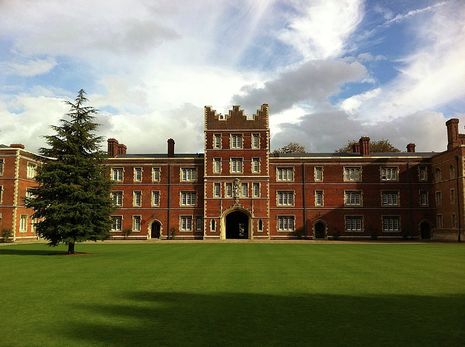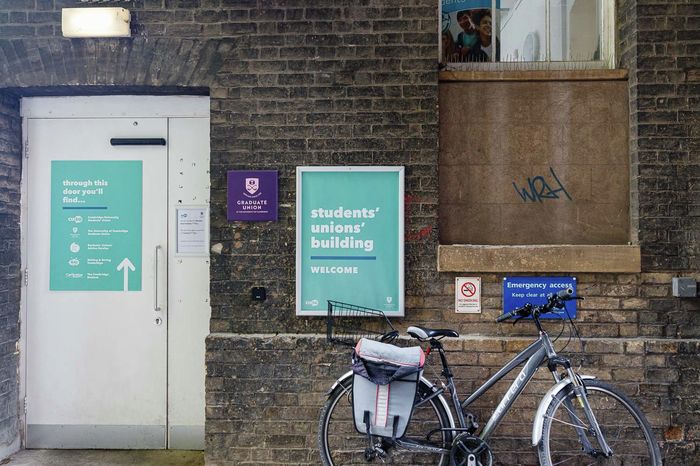Jesus MCR President ‘prepared to resign’ over dispute with college leadership
The College requires all members of the College Council, including MCR and JCR presidents, to be listed as a ‘charitable trustee’, raising concerns about legal responsibility and integrity as student representatives

Joe Shaughnessy, 2020-21 president of the Middle Combination Room (MCR) at Jesus College, could be set to resign just a month after assuming the position, following a dispute with college leadership.
The dispute pertains to being appointed to the Jesus College Council as a charitable trustee while acting as a student representative.
In an open letter addressed to the Society of Fellows and the College Council at Jesus, Shaughnessy claims that he had been advised to resign due to the “inappropriate nature” of fulfilling the duties of a trustee while also representing the student body. Shaugnessy claims that this poses a conflict of interest, in that “trustees have extensive legal responsibilities and accountability for the governance of a charitable body, and [...] Student Representatives cannot fulfil the associated duties without access to the reserved business of the Council”.
The letter has so far received the support of over 50 signatories.
The ‘Statutes of Jesus College in the University of Cambridge’ states that “Student Members of the Council may not receive papers, be present or vote in relation to [...] reserved areas of business of the Council”.
While considering resigning over this issue of coterminously acting as both a student representative and charitable trustee, which he claims was an unclear requirement for the office of MCR President, Shaughnessy is “firm in [his] understanding that this matter is about precedent, appropriate governance, and the College’s treatment of Junior Members”.
The Master of Jesus College, Sonita Alleyne, is alleged in the open letter to have described the MCR President’s reluctance over accepting the coterminous positions as a ‘personal conundrum’, advising him to comply with the statutory requirement to accept both Council positions under the terms of the Charity Act of 2011, which Jesus College described to Varsity as “not a discretionary College decision, but a role automatically conferred on Council members”, or to tender his resignation by Monday 13th July.
However, Shaughnessy posits that there is “not an emphatic position for compelling Student Representatives to Council to become Trustees”, arguing that “on a practical level, Statute III.3.a [which states that ’A Member of the Council ceases to hold office: if he or she is disqualified from being a charity trustee] is not frustrated through the appointment of Student Representatives to the Council who are not trustees”.
He criticises the “lack of express requirement that all Council Members must also be appointed as Trustees,” adding that “such a requirement, if intended, could easily have been stated in the Statutes (or Regulations) in positive language”.
Shaughnessy calls for “interpretive mediation” with regards to the coterminous holding of student representative and charitable trustee positions, stating that “it would be appropriate for Council to consider and form a view on” the “compromising fiduciary roles, accountable for decisions, votes and compliance that they are not even permitted to know about”.
A spokesperson for Jesus College told Varsity that “the Master and College officers are taking the matters raised by the current MCR President very seriously”.
However, while they acknowledge that the requirement of coterminous positions for the office of MCR President could be clearer, stating that “the JCSU and MCR will be asked to highlight this important part of the president’s role during their elections process”, they clarified that “the requirement for the MCR president to be an elected member of Council is set out in [their] college regulations [...] which has been the case for all student members since 2010”.
Alleyne drew attention to the significance of “the voice student council members bring to College debate” as “crucial”, saying that she is “loathe to lessen the equity of membership in the College’s democratic position”.
The statement continued: “if students no longer wish to be trustees, it is not possible for them to be Council members”, and that “any loss of student involvement in decision-making, and particularly at this level, would be detrimental to the student body and College as a whole”.
Alleyne also “expressed her wish to see [Joe Shaughnessy] stay in post and continue the positive contributions he has brought to College since taking on the role”.
Shaughnessy told Varsity that he has been made aware of the requirements of the Charities Act of 2011, but nonetheless remains “disconcerted [at] the unacceptability of making students equitable trustees of the college while obstructing their access to the full business of the other trustees”.
However, Jesus College sought to reassure that “in line with other Colleges, extensive insurance cover is provided to protect trustees from financial or legal risk for their collective actions and decisions”.
When asked about his current intentions to resign, Shaughnessy commented that he is “prepared to [...] if the MCR Executive Committee believe it is more appropriate than pursuing these concerns for the integrity of Junior Members at Jesus, both for now and for posterity”.
Tensions in Jesus College’s student leadership emerge just one week after news that the College had received hundreds of thousands of pounds in ’finanical contributions’ from Chinese sources.
 Comment / Plastic pubs: the problem with Cambridge alehouses 5 January 2026
Comment / Plastic pubs: the problem with Cambridge alehouses 5 January 2026 News / Cambridge businesses concerned infrastructure delays will hurt growth5 January 2026
News / Cambridge businesses concerned infrastructure delays will hurt growth5 January 2026 News / New movement ‘Cambridge is Chopped’ launched to fight against hate crime7 January 2026
News / New movement ‘Cambridge is Chopped’ launched to fight against hate crime7 January 2026 News / Uni-linked firms rank among Cambridgeshire’s largest7 January 2026
News / Uni-linked firms rank among Cambridgeshire’s largest7 January 2026 News / AstraZeneca sues for £32 million over faulty construction at Cambridge Campus31 December 2025
News / AstraZeneca sues for £32 million over faulty construction at Cambridge Campus31 December 2025










